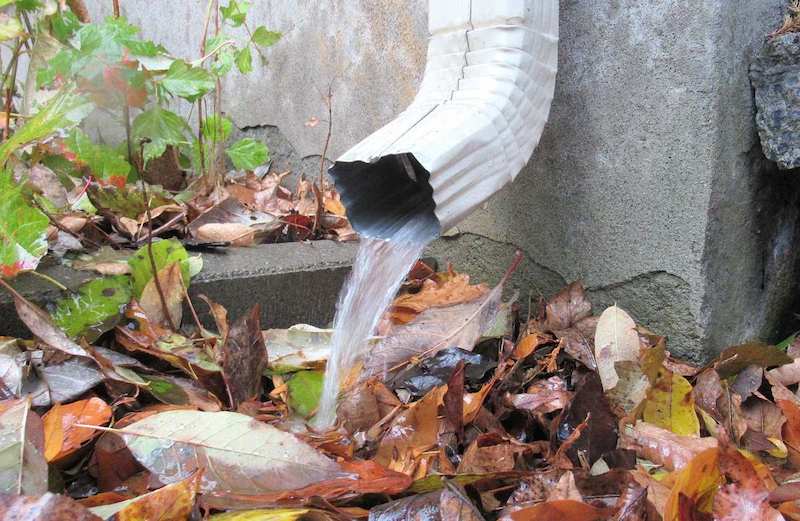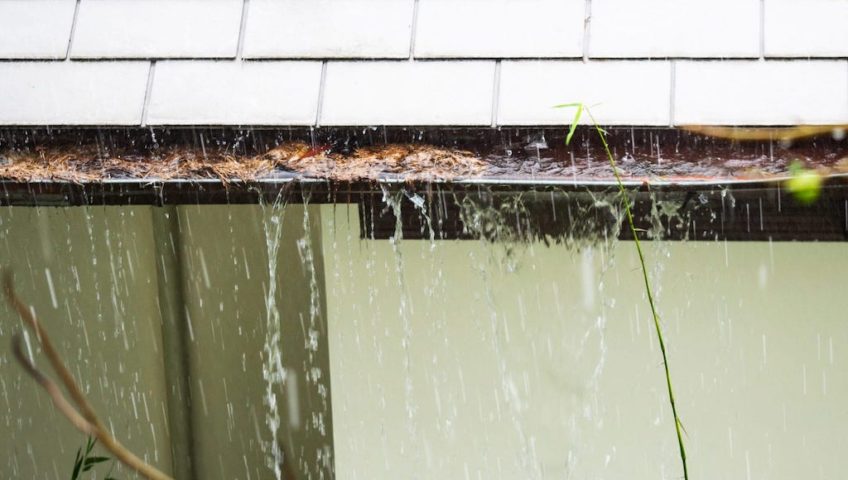When gutters work correctly, they are supposed to protect your home from water damage. They direct rainwater away from your foundation, walls, and landscape. However, when they overflow, they can cause many problems, from mildew on your siding to severe foundation issues. In this post, we’ll explain why it’s important to understand why your gutters are overflowing and how fixing them can save you time, money, and frustration.
What Happens When Gutters Overflow?
Gutters are installed to redirect rainwater from your home’s foundation. However, obstructions in the path can lead to water overflowing, resulting in severe consequences. Below are some of the issues that overflowing gutters can cause:
- Discolored or damaged siding
- Sidewalk cracks
- Foundation erosion
- Roting wood in eaves
- Landscape erosion
- Discoloration of house walls
- Mold growth
Common Reasons Your Gutters Are Overflowing
Overflowing gutters can cause soil erosion around your house, damage your landscaping, cause paint to peel, and even cause basement flooding or foundation damage. Your gutters could overflow due to clogged gutters, incorrect slope, insufficient size gutters or downspouts, heavy rainfall, or damage to the gutters. Identifying these reasons early on can prevent costly repairs to your gutters or home.

1. Clogged Gutters or Downspouts
The most common reason for overflowing gutters is a blockage. Leaves, twigs, and debris can clog your gutters and downspouts, preventing water from flowing freely.
2. Incorrect Gutter Slope
Gutters need a slight slope towards the downspouts to allow water to flow freely. If they are not pitched correctly, water will pool instead of draining, leading to overflow.
3. Insufficient Size
If your gutters are too small to handle the volume of water from heavy rains, they will likely overflow. This is often an issue in areas prone to heavy rainfall.
4. Not Enough Downspouts
Downspouts carry water from the gutters to the ground. Too few downspouts can lead to gutters overfilling, especially during heavy rainfall.
5. Heavy Rainfall
Sometimes, the volume of rainwater is too much for any gutter system to handle.
6. Damaged Gutters
Bent, sagging, or cracked gutters cannot properly move water away from the roof, leading to overflow.
How to Stop Your Gutters From Overflowing
Taking proactive steps can significantly reduce the risk of overflowing gutters.
1. Remove Debris
Cleaning your gutters and downspouts regularly is key to preventing clogs. Try to clean gutters at least twice a year or more frequently if you live in an area with many trees.
2. Check Gutter Slope
Ensure your gutters slope towards the downspouts for proper drainage. A general rule of thumb is a quarter-inch slope for every 10 feet of gutter.
3. Install Wider Gutters
If overflow is a frequent problem, upgrade to larger gutters to handle more water.
4. Add More Downspouts
Adding more downspouts will reduce pressure on your gutters and prevent overflow.
5. Install Splash Guards
Splash guards can be installed at the roof’s valley and help direct water into the gutters in areas where overflow is common.
Maintenance Tips to Fix Overflowing Gutters
Overflowing gutters are a common problem for many homeowners. If you’re experiencing similar issues, don’t worry. We’ve gathered a list of top maintenance tips to ensure your gutters remain clear and functional throughout the year.
- Clean Gutters in Fall and Spring: Clean gutters in the fall after leaves have dropped and again in the spring before the heavy rains start.
- Prevent Ice Damns: Check gutters aren’t sagging or moving away from the side of your house.
- Install Gutter Guards: Add gutter guards to prevent gutters from overflowing from heavy rain.
Hire New Vision Seamless Gutters to Fix Gutter Overflow
If your gutters continue to overflow despite your best efforts, or if you’re uncomfortable working on a ladder, it might be time to call in the experts. Professional gutter maintenance services can thoroughly clean and inspect your gutters, identify any issues, and perform necessary repairs or upgrades.
Conclusion
Ignoring overflowing gutters can lead to costly repairs down the line. Regular gutter maintenance is essential for preventing overflow and protecting your home from water damage. By understanding the common causes of gutter overflow and taking proactive steps to address them, you can ensure your system functions effectively all year round. Remember, the cost of regular gutter maintenance is far less than the expense of repairing water damage to your home. Prioritize your gutters, and they will take care of your home.

